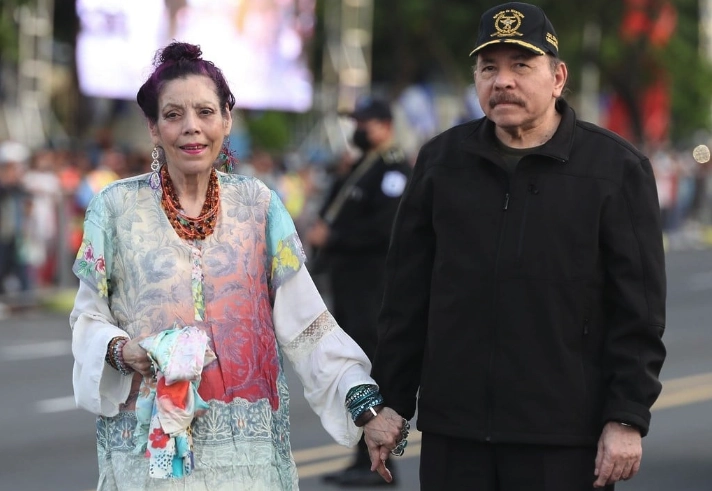Central America is in the midst of its worst crisis in the last four decades, as reflected in the main reports that measure the quality of democracies at the global level. Although all Latin American democracies are going through a crisis, the Central American region shows significant democratic setbacks. Thus, two worrying phenomena can be observed. On the one hand, the erosion and regression of democracy in countries such as El Salvador, Honduras, and Guatemala, and, on the other hand, an advance and deepening of authoritarianism in Nicaragua.
The most acute case is Nicaragua, an authoritarian regime patrimonialized by the Ortega-Murillo family, which is immersed in a repressive practice and willing to do anything to remain in power. This democratic regression has been noticeable since Ortega’s return to the presidency in 2007, but it has been gradually accentuated until it exploded in 2018. The last blow to Nicaraguan institutionality occurred in November 2023 when the vice president, first lady, and Coordinator of Social Communication, Rosario Murillo, proclaimed herself president of the Judiciary. From that moment on, Murillo carried out a great purge in the Judicial Branch with the dismissal of more than 900 officials, headed by the president of the Supreme Court of Justice.
In this repressive delirium being carried out in Nicaragua against any kind of opposition to the Ortega regime, two facts stand out: on the one hand, the recent arrest of Bishop Isidro Mora in what constitutes the latest episode of a constant onslaught against the Catholic Church in that country. On the other hand, the Miss Universe affair, whose director resigned after accusations of treason by the Ortega government, reflects the degree of intolerance of the Sandinista leadership toward any hint of dissidence. To this must be added the country’s recent withdrawal from the Organization of American States (OAS) after rejecting criticisms made by the organization for multiple human rights violations.
The situation has also been worrying in El Salvador since the arrival of Nayib Bukele to power. Since the beginning of his mandate, Bukele has been carrying out a dismantling of democratic institutions based on the high level of popular support he enjoys. Undoubtedly, the greatest blow to institutionality occurred in 2021 when the National Assembly dismissed 5 magistrates of the Constitutional Chamber and appointed new magistrates close to the president, which allowed him to approve the presidential reelection, which the Constitution prohibits. Thus, Bukele made evident his intentions to perpetuate himself in power.
For its part, Honduras, despite the change of government and its promises of democratic regeneration, continues to drift due to its close links with drug trafficking, high levels of corruption, governance problems, and the unjustified continuation of the state of emergency that has been in force in the country for more than a year.
The problems of governance and the lack of consensus between the Executive and the Legislative have been evident since the beginning of Castro’s mandate, in January 2022, after two boards of directors were sworn in for the period 2022-2026, one led by Luis Redondo and the other by a congressman of the Libertad y Refundación (Libre) Party, Jorge Cálix. Although this conflict was resolved in favor of Redondo, since then, the legality of his appointment has been questioned by the opposition, accentuating the polarization in this country.
In a recent episode of political confrontation in Congress, last October 31, the Congress fragmented into two factions, similar to what happened in January 2022, after the appointment of the interim attorney general, Johel Zelaya — favored by the Libre Party. This appointment took place in an unelected process, by a pro-government minority, generating concern in the community in general and creating once again a situation of ungovernability in the National Congress.
Likewise, for the last year, the Executive Branch has been publishing a new decree (PCM) every month to extend the State of Exception in force in the country, which was decreed by the Government to fight organized crime. However, the data published by the Public Prosecutor’s Office on insecurity linked to organized crime does not seem to justify the maintenance of this measure.
For their part, the events that took place in Guatemala during the last electoral process generated concern about the direction of this country. In the elections held in 2023, Guatemala made a political turnaround by proclaiming the Semilla Movement, led by Bernardo Arévalo, as the winner. The control of the judicial and electoral institutions by the Guatemalan political elite has allowed the exclusion of candidates threatening the system from the elections. Nonetheless, it has not been able to prevent Arévalo’s triumph in the second round of elections, held in August of this year. Since then, the Public Prosecutor’s Office has led a crusade to impede the democratic transition and prevent the president-elect from taking office, as scheduled, on January 14.
While the Public Prosecutor’s Office continues to allege that Semilla won by fraud and that it committed illegalities when it was formed as a party, the different actors of the Guatemalan civil society continue to defend the legitimacy of the electoral results and to prevent the democratic drift of this country.
Thus, just a few days before the end of 2023, the region faced a scenario marked by attacks on democratic institutions and corruption and the continuity of long-standing problems such as poverty, violence, and immigration. Unfortunately, there are no signs of improvement in the short term, which anticipates another complex and challenging year characterized by high political uncertainty, economic slowdown, and a growing disaffection of citizens with the political system.
*Translated by Janaína Ruviaro da Silva from the original in Spanish











